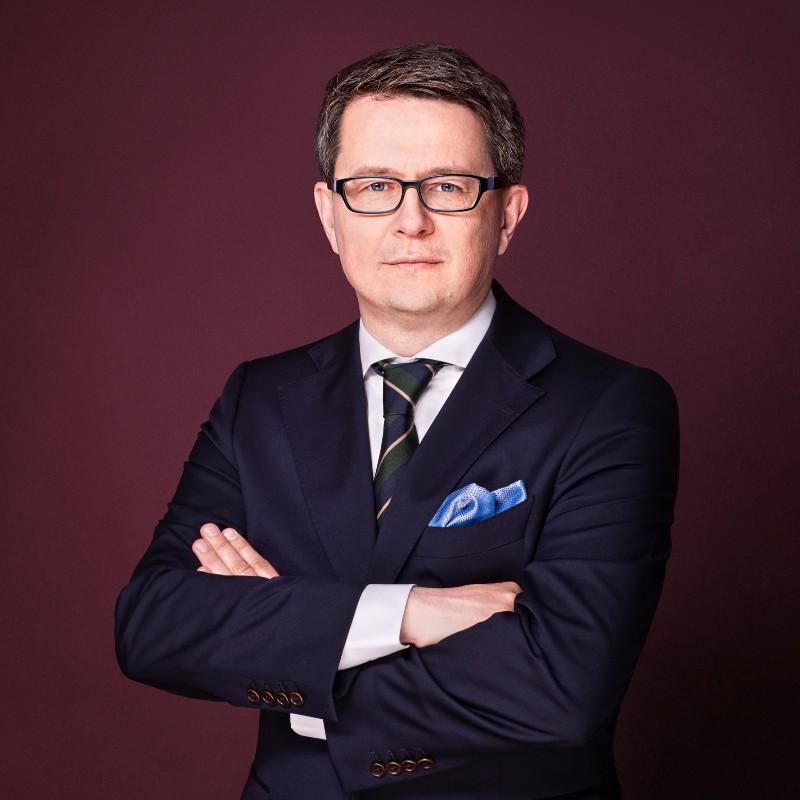Prof. Rafal Sikorski: Towards a More Orderly Application of Proportionality to Patent Injunctions in the European Union

Rafal Sikorski is a law professor, Chair of European Law at the Adam Mickiewicz University of Poznan in Poland. He is also a senior partner at the Polish law firm SMM Legal.
Throughout his career as an academic and a practising lawyer Rafal Sikorski has focused on protection and licensing of intellectual property. He graduated a decade after Poland’s communist era had ended but still several years before it joined the European Union.
“There was a lot of unfair competition particularly around trademarks back then. Copyright issues were also common.
Poland has come a long way since those Wild East days after communism. Today, his interests moved to patent law as patent abuse has taken over from the pirates and wheeler dealers abusing trademarks. The reason is simple: technology.
“The rapid advances in technology have led to more and more complicated products often incorporating hundreds, thousands of patents. This has created patent thickets. I have seen a lot of patent abuse here, and it’s stifling innovation, instead of promoting it as patents are supposed to,” he said.
Europe is some way behind the US in addressing some of the imbalances that have inadvertently created a lucrative industry in patent abuse.
“The abuse of patents by patent asserting entities (PAEs) is a problem in Europe. Less so in the US since the 2006 Supreme Court ruling in the eBay case,” said Sikorski.
That landmark ruling forced courts in the US to take a more balanced approach to disputes between patent owners and implementers. Before it, injunctions were often handed out automatically.
Since the ruling, US courts no longer presume that infringement results in irreparable harm to the patentee. This means that effectively, injunctions are no longer automatic in the US.
Europe will follow suit. “The US is usually 10-15 years ahead of Europe. The idea of taking a more flexible approach to patent disputes is still very new here.”
He described the reform of German patent law adopted in June of this year as “a very interesting development”.
“German judges may be reluctant to move away from handing out automatic injunctions, but it will become hard to claim that nothing has changed as a result of the reform,” Sikorski said.
He added that when judges do hand out automatic injunctions these cases will be referred to the Court of Justice of the EU, where the meaning of proportionality will be considered.
“Over time this will lead to a change towards a more flexible approach by patent courts,” he said.
Not just in Germany but across Europe. “Once the principle of proportionality is there it’s hard to say it isn’t relevant. Potential litigants will try to use it, that’s for sure,” Sikorski said.
In fact, the principle of proportionality has been there for some time. It was enshrined in the 2004 Intellectual Property Rights Enforcement Directive (IPRED) – a law originally intended as a safeguard against pirates and counterfeiters from the new EU member states, including Poland.
And yet automatic injunctions – with no consideration of proportionality - are still common in many of the largest patent jurisdictions in Europe. “I am astonished what some judges in the EU say (in defence of automatic injunctions), in spite of what is written in IPRED,” Sikorski said.
The European Commission is well placed to help speed up the process of reform. “It would be useful now for the European Commission to provide guidelines on how to interpret article 3 (2) of IPRED, and to explain what proportionality could mean in regard to patent litigation,” he said.
In the paper below by Professor Sikorski, titled: Towards a more orderly application of proportionality to patent injunctions in the EU,he proposes changes needed to safeguard Europe’s patent system from abuse by opportunistic PAEs.
Other blogs

Decades old patent framework harms Europe's competitiveness

UPC Early Litigation Data: The Innovation Paradox

